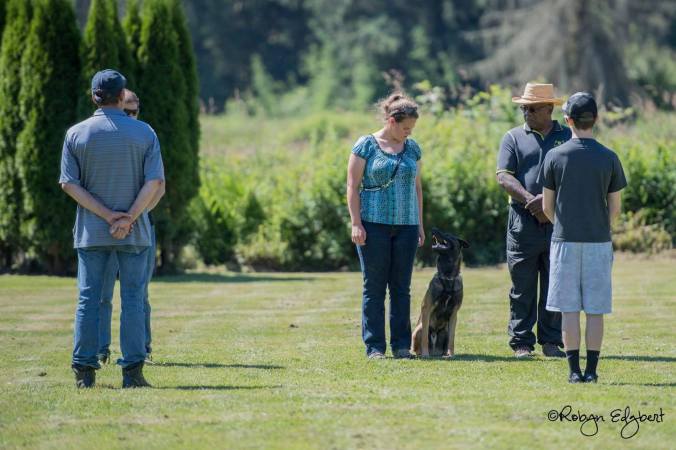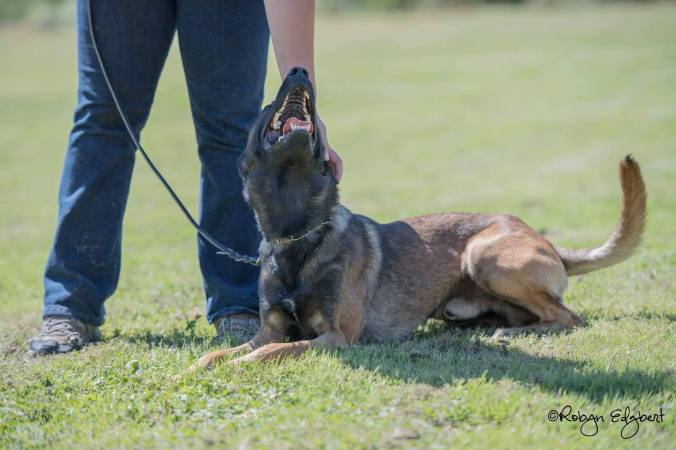Welcome back, newbies!
No more snark this week – instead we’re going to talk about how to go about selecting your first trial.
Now, if your club hosts trials, of course you’re going to want to trial at home for your first time. The ability to do so gives you a HUGE advantage over traveling to an unknown location.
However, not all clubs host trials (mine doesn’t, for example – we’re way too small). Additionally, if you have any Regional or National ambitions, you will have to travel eventually, as well.
So, let’s talk about selecting what trials we want to attend.

Believe it or not, it is not as simple as just finding the closest trial. Well, I mean, it can be, but sometimes this strategy is not going to be the best one for success.
There are several things to consider.
Proximity
I know I just said you don’t necessarily want to just choose the closest trial, but of course proximity should be a factor.
Consider how experienced your dog is at traveling – has he or she ever spent eight or more hours on the road before? Does your dog bounce right back after a long day of travel? Does your dog struggle with stomach or digestive issues when traveling?
All things to consider. If your dog isn’t a very experienced traveler, or you know that he or she struggles on the road, maybe try to choose a trial a little closer to home, at least for the first time out.
Weather
Yes, weather should factor into your decision.
I know it probably sounds ridiculous to some, but weather can have a very real impact on your dog’s performance.
So, consider how your dog handles different weather conditions.
Hates rain on his face? Maybe don’t pick a trial in Seattle.
Hates the heat? Arizona in July might be a bad choice.
Yes, eventually we would hope that our dogs can perform consistently regardless of conditions, but at the beginning, we should really try to set ourselves up for success, if at all possible.
Weather is actually one of the biggest factors I consider when looking at my trial schedule. My dog is still very young and inexperienced, so I don’t have plans to push him to perform in weather he hates. Not yet.
He really hates the heat. It just sucks the enthusiasm out of him. So you aren’t likely to find me trialing during the summer months. It kind of sucks – I really love trials – but setting my dog up to be successful is more important to me.
Venue
The next thing I consider when looking at a trial is the trial venue – where is the thing being held?
Some fields are in very busy public spaces – not great for a dog that is easily distracted.
Some fields are on farms – probably not the greatest for a dog that’s never been in proximity to livestock.
Some fields are in the woods – wouldn’t be my choice for a dog with a penchant for chasing after wildlife.
Consider what your dog’s weaknesses are and decide if he or she has any that will limit your success in a specific trial venue. Again, down the road this won’t be such a large consideration, but at the beginning, why not select a trial field that isn’t begging your dog to fail?
Judge
Next, look up who the judge is going to be. Ask around at your club – what’s the judge like to trial under?
This may sound a little disingenuous – why on earth would it matter who your judge is?
Hear me out here.
It matters.
For example, if I know a judge is going to take a hard line on how the dog behaves at check-in and at the start line, I’m not likely to trial under them. My dog is a bouncy, excited, enthusiastic mess, right up until I give the “fuss” command. The judges I’ve trialed under have been patient with us and rather indulgent toward his puppy-ish antics.
Not all judges will feel that way, though, so why enter a trial knowing I’m going in with a disadvantage?
Additionally, I’m a newbie! I was a nervous wreck at the trials I’ve attended! The kindness of the judges was a HUGE factor in my feelings toward continuing in the sport. Had a judge said something harsh or unkind to me, I might have dropped out of the sport then and there!
So, if possible, choose a judge that is a known quantity. That is known for being patient with BH dogs and newbie handlers. Frankly, this is probably most judges, but it doesn’t hurt to be sure!
The Host Club
Who is hosting the trial and what do you know about them?
I mean this in the most tactful way possible, but some clubs are more pleasant to trial under than others and this can really make or break your trial experience as a newbie.
One club that I trialed under is known for hosting fantastic trials and they really were great. The atmosphere throughout the entire thing was overwhelmingly supportive of all of the competitors and every effort was made to set every single competitor up for success. I was made to feel extremely welcome, and the Training Director for the host club even contacted me before trial day to make sure that I got set up with a time to practice on their field and to make sure I had everything I needed. (I’m talking about Rogue Valley Schutzhund Club and I highly recommend their trials if you’re in the region!).
On the other hand, I’ve been to trials where only club members were permitted to practice and where it was made clear that “outsiders” weren’t really welcome. As a newbie, it was fairly off-putting and I won’t be returning.
The point is, for us newbies, trialing is supposed to be a fun experience and the host club can absolutely make or break that experience.

I know it seems like I’m telling you to choose a new university rather than a schutzhund trial, but take it from me, fellow Newbies, these things are important! Sure, you can enter any trial, regardless of any of the above, and still be successful. Absolutely, you can. But, after all of the blood, sweat, tears, and MONEY that you have dumped into this sport up to this point, shouldn’t your first trial be an experience that keeps you coming back for more? Do the footwork before choosing a trial and set yourself up for success!